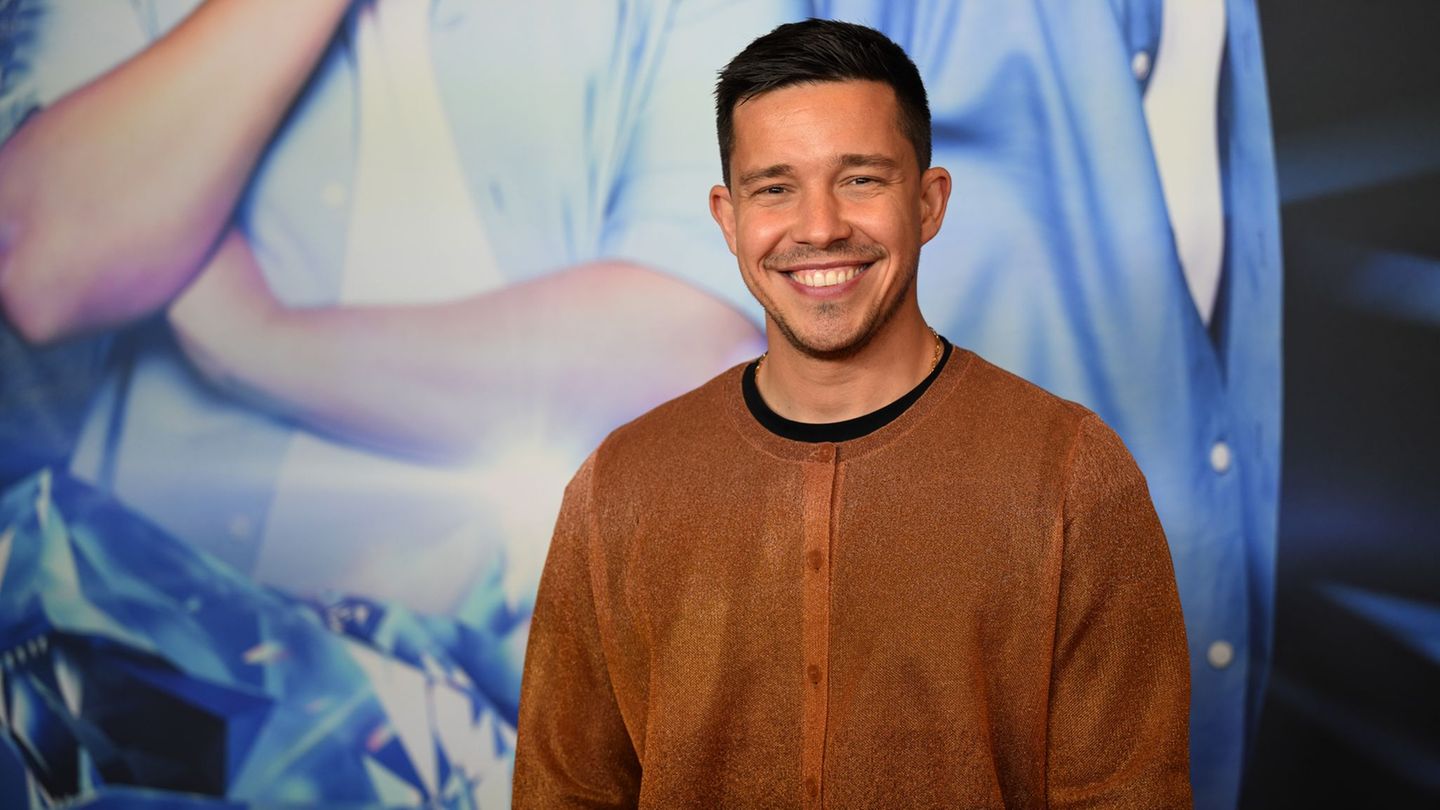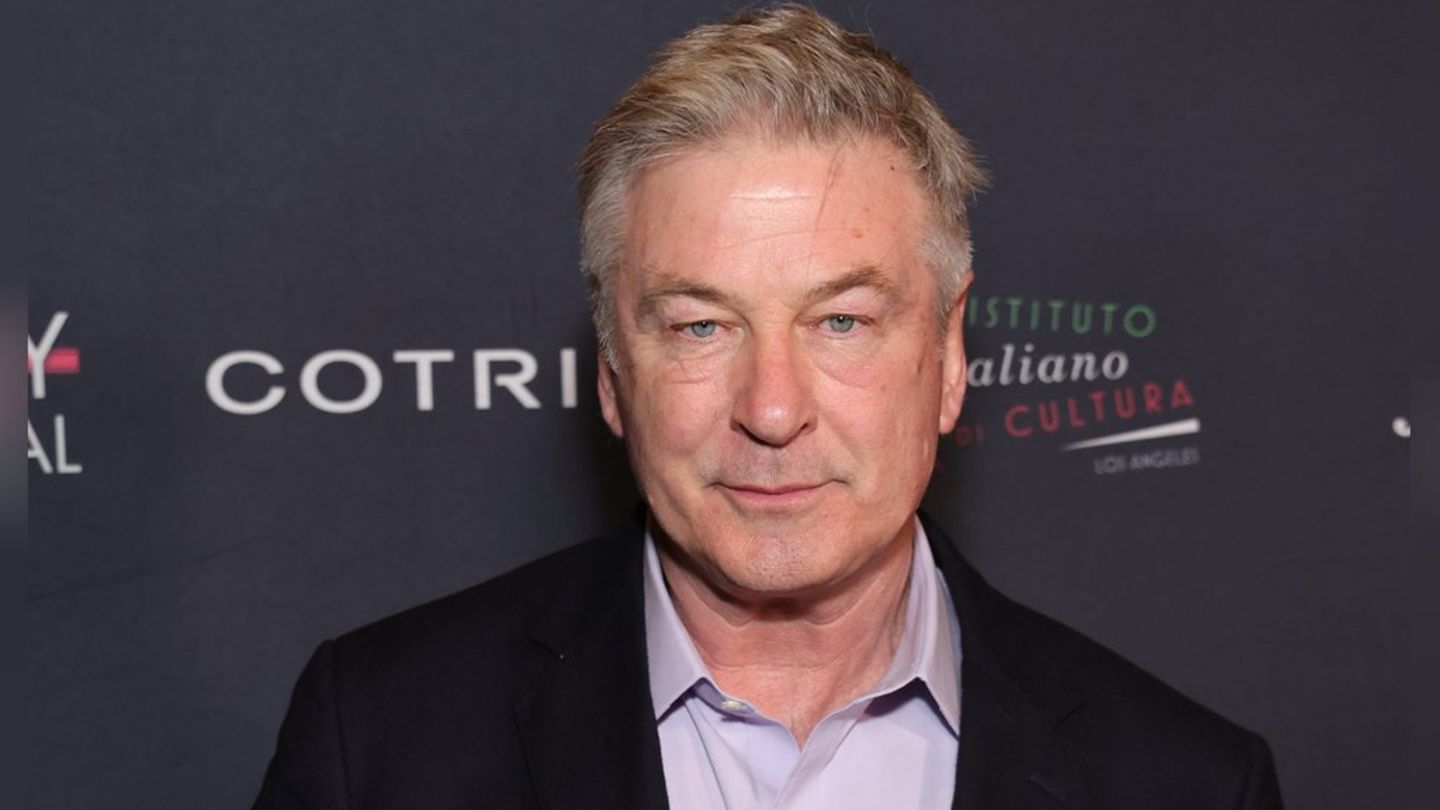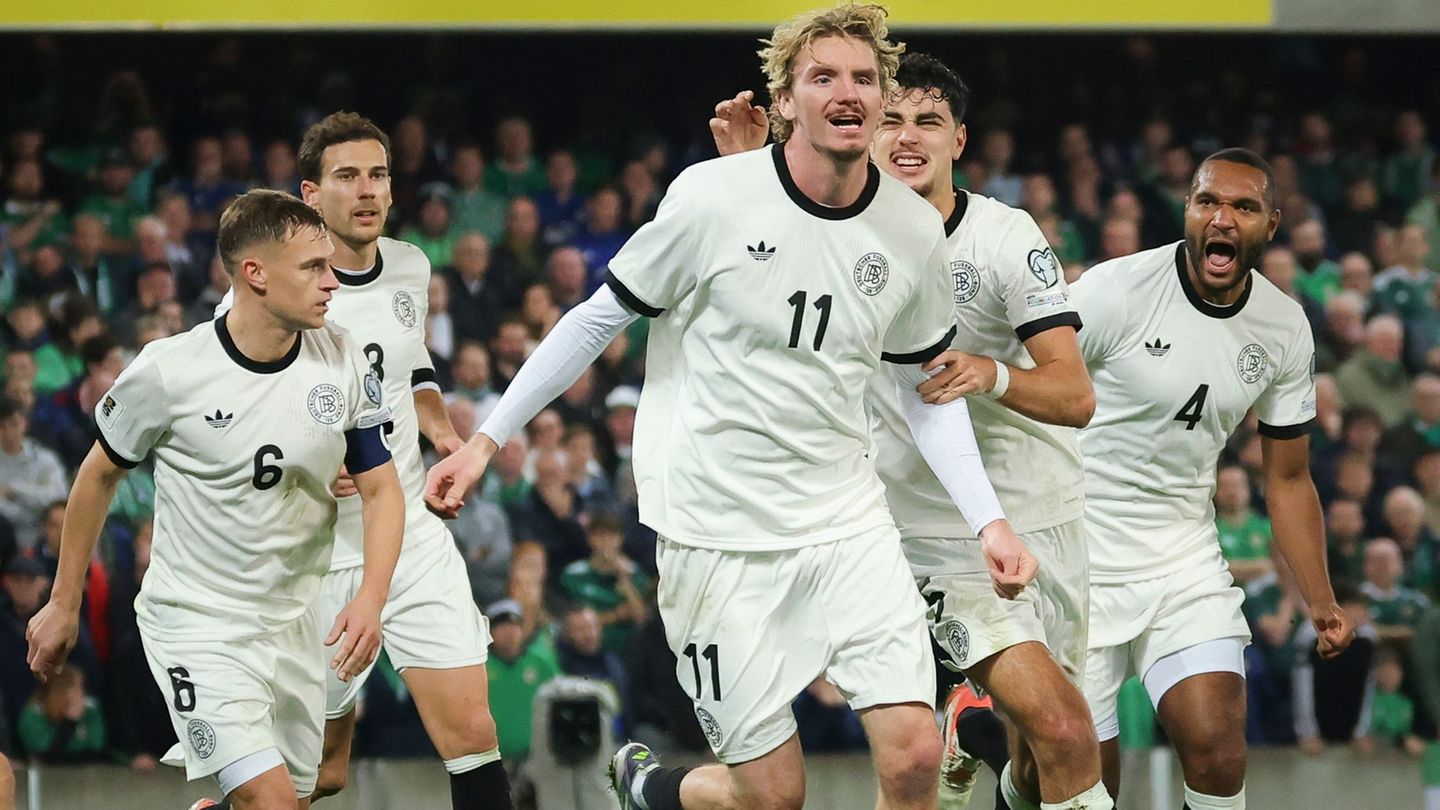Charly Hübner plays security guard Eric in “The Silent Trabants”. In an interview, he talks about being bald, the magic of the night, and hope.
In the movie “Die stillen Trabanten” (theatrical release: December 1) by the Leipzig director Thomas Stuber (41, “Polizeiruf 110: An der Saale bright beach”), the former “Polizeiruf 110” star Charly Hübner (49) plays the security guard Eric . With his dog, he ensures order in the residence for foreigners, a prefabricated building from the GDR. During one of his evening patrols, he meets the young Marika (Irina Starshenbaum, 30), who comes from the East, and develops feelings for her.
A tender bond develops not only between these two lonely souls, the same also happens to the other people – played by Martina Gedeck (61), Nastassja Kinski (61), Lilith Stangenberg (34), Albrecht Schuch (37), Andreas Döhler (b. 1974), Peter Kurth (65) and Adel Bencherif (47) – in this slow, quiet, sometimes depressing and yet clearly positively resonating film, which was awarded the “rating particularly valuable”.
Among other things, the bald head with which Charly Hübner can be seen is visually striking. It’s not the first time, as he says in an interview with the news agency spot on news. But even on the set, his hairstyle brought a wide variety of reactions. From “Your suits” to “It’s not possible” to “Hard!” and “Looks cute!” apparently everything was there.
Why did you want to take part in the film “The Silent Trabants”, which was based on the short stories of the same name by Clemens Meyer (45, “Tatort: Attack on Guard 08”)?
Charly Hübner: Thomas Stuber and I know each other at work and I am a Clemens Meyer reader. When I received the request, it was clear that I wanted to play a part.
What particularly fascinated you about it and your role?
Hübner: Meyer and Stuber talk about people who are not the focus of attention and success. It is fellow human beings who take care of security and cleaning at night. People who live their lives half awake, half asleep and walk in their memories, longings and dreams. Since those responsible know what they are talking about, you want to be there.
The first thing you notice about your role is the new hairstyle. Who came up with the idea of the bald head? And how was the transformation for you?
Hübner: Thomas Stuber and I immediately agreed that Erik was bald. In my most recent work, I wore a long-haired, red, curly wig, which was extensively handcrafted for me every morning, including very bushy eyebrows, and that’s how it was every morning in the make-up for “The Silent Trabants” – mask time! I was glad that I didn’t have to wear long black curls in parallel.
The film tells of small nocturnal encounters that reverberate in the lives of the three protagonists. Have you ever experienced something like this yourself?
Hübner: Who hasn’t experienced that? Whether as a student, teenager or after a late theater performance – at night some souls are open, some have an effect and some don’t at all.
The living conditions of the security guard, snack bar owner (Schuch) and the cleaner (Gedeck) range from unembellished to depressing. Why does the film still give hope?
Hübner: In another film, the main character says: everything is fine in the end, and if it’s not fine, then it’s not the end yet. And here we see people trying to do something good – and that is hope.
Most of the stories in the film take place at night. What is your own relationship to it? What is the night doing to you?
Hübner: On the one hand, the night seems more concrete, lonely, more precise to me, perhaps because the days in our world are so full and overcrowded. Secondly, there is something blurry and unreal about the night, which I often enjoy.
Would you say that “The Silent Trabants” is a film that dispenses with heroic stories?
Huebner: No. I think all three are heroic stories because they dare something in their lives at night that changes their lives – they leave the long-known paths.
How romantic do you find the love stories between Erik and Marika, Jens and Aischa/Jana (Stangenberg), Christa and Birgitt (Kinski)?
Hübner: Is it about romance? What does romance mean? Two people meet who are looking for, missing and wanting to feel each other. The pure life.
One of the most touching scenes in the film is where Erik and Marika dream and dance in the Russian barracks. How do you feel about this scene?
Hübner: This scene tells me a lot about her story, her imprint, about what her emotional memory is – about something where they have a common space that makes them happier than they were before.
Source: Stern
I am a 24-year-old writer and journalist who has been working in the news industry for the past two years. I write primarily about market news, so if you’re looking for insights into what’s going on in the stock market or economic indicators, you’ve come to the right place. I also dabble in writing articles on lifestyle trends and pop culture news.




